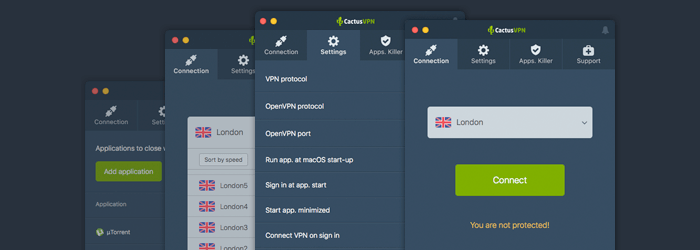How Do You Know What Your Network Credentials Are?
What Is Online Identity?
An online identity can be anything from a social media contour or a forum account to a video game graphic symbol or fifty-fifty a shopping cart. Basically, it can either be a social identity associated with an online community, or just a simple account or data that'south associated with online services.
If you're looking for a more accurate and specific definition of what an online identity is, then here's one: Any bit of information (no thing how small) that tin can be found about an individual on the Internet.
That ways that an Internet identity tin even exist comprised of things like:
- Login credentials
- Online transactions
- Online search activities
- Medical history
- Appointment of birth
- Browsing history
Is Protecting Your Online Identity Important?
Definitely. In fact, far too few people realize just how necessary information technology is to accept your Cyberspace identity seriously if yous desire to protect your privacy on the spider web.
All it takes is being a bit sloppy, and your personal information (name, concrete address, IP accost, telephone number, and much more) will end upwards in the wrong easily. And yes, there are plenty of people, businesses, and organizations who are interested in your online identity.
Who Is After Your Online Identity?
Some of the entities that are interested in your individual data, identity, spider web traffic, Cyberspace usage habits, and other sensitive data include:
- Your ISP
- Hackers
- Advertisers
- Authorities surveillance agencies
- The government
- Search engines and social media platforms
- Whatever other websites you visit
- All sorts of businesses
Truthful, some of those entities are legally allowed to collect your data. In certain cases, you yourself give your consent for that to happen. However, information technology'south still a grey surface area.
Sure, you might consent to sharing some personal data with Facebook, for case, and might non even mind that they share it with advertisers, but doesn't getting bombarded with "personalized" ads end upward feeling as well annoying, intrusive, and a little creepy? Plus, you do have the right to protect your privacy and online identity, afterwards all.
How Is Your Personal Data and Information Used?
People/Organizations interested in your individual information and data might have unlike intentions, and none of those are really in your favor. Sadly, with how the Internet works overall, there isn't actually a clear concept of privacy and privacy rights.
"What do you lot hateful? What about Privacy Policies and privacy laws?"
Nosotros're not saying those are non a matter or that they don't accomplish annihilation, just think of it this fashion: Websites tin can still come across what yous are searching for on other websites, advertisers tin can see how you respond to different kind of ads, and they tin even build profiles based on your online habits (yes, information technology's legal), and ISPs tin can pretty much see everything y'all do online.

True, all those deportment have a purpose (whether information technology's offer you lot convenient services or trying to sell you a product yous might really need), only it's harder and harder not to feel like your privacy rights are taking a back seat to all of it, isn't it?
Just think about what various entities similar to do with your personal data, and how they collect it:
- ISPs can actually sell your data to advertisers for a profit (at least in the US), and must share information technology with government surveillance agencies or the authorities. Even if we assume they don't do that, they can still snoop on your online identity and habits, and throttle your bandwidth whenever they want to "convince" yous to pay for a pricier subscription or data plan.
- Governments and surveillance agencies similar to monitor everything yous do online. They claim they do it to combat terrorism and crimes, but the fashion they get about doing it is pretty illegal itself. Edward Snowden already showed us that government agencies spy on their ain citizens and suspension numerous laws intended to protect the privacy of individuals.
- Search engines put together lists containing tons of data about your online identity, including things like your gender, geo-location, phone number(southward), political and religious ideologies, financial and health issues, etc. What's more than, search engines likewise have no trouble sharing that kind of info with advertisers for a profit.
- Advertisers love to know everything about your online activities, web traffic, shopping habits, and your personal preferences and so they tin send targeted ads your manner. The word "privacy" doesn't really seem to exist in their dictionary.
- Websites use cookies to track your activities and online traffic to give you a more "personalized experience." While that can be convenient, it as well ways they'll be logging a lot of information linked to your online identity – information that can end upwards in the hands of advertisers or even cybercriminals in the case of data leaks or privacy breaches.
- Speaking of hackers, they're crazy about your private data because it can aid them access your bank accounts, credit cards, social profiles, and near everything you have. They can even go loans in your name and ruin your credit rating as well as your life.
Considering all of that, there are more than enough reasons to acquire how to protect your online persona.
How to Protect Your Online Identity?
While the situation might seem bleak, it is non that hard to protect your private information and online identity. All you lot have to exercise is follow these tips, and you'll be able to enjoy an extra layer of privacy and security:
1. Use Stiff Passwords
Use numbers, messages, and special characters to make the passwords strong and difficult to guess. Do not use obvious things like your birth date or domestic dog's name every bit passwords.
Apparently, practise not share your countersign with anyone else, and practice non write downward your passwords in obviously text. Yous tin employ encrypted software like, KeePass / KeePassXC, Bitwarden, LessPass to salve multiple passwords.
For more advice, check out our guide on how to create a potent password.
2. Create a Secondary Email Address
It's better to not apply your postal service e-mail address for things like newsgroups, video games, and forums. Y'all should merely share your principal email accost with people you know personally.
Ideally, you should aim to use an anonymity-oriented or encrypted email service like ProtonMail or Tutanota. If you're stuck with Gmail or merely prefer using it, brand sure you use this extension to encrypt your emails and attachments.
3. Don't Appoint with Spam Mail
If you become whatever spam emails, don't reply to them, click on any links, or open/download any attachments. You might be redirected to a phishing website or exist exposed to malware infections.
Also, don't click on whatsoever unsubscribe button because, this way, the spammers will know it'south a valid electronic mail address. But put those emails in the spam folder or delete them.
Nosotros actually have an commodity where you lot can learn more than most spam and how to cease it.
iv. Use VPN (Virtual Individual Network) Services
A VPN is a service you lot can use to better protect your online identity by securing your personal data on the Net, safeguarding your online traffic, and keeping online surveillance at bay. All of that is accomplished by using strong encryption that prevents anyone (government surveillance agencies, ISPs, and even cybercriminals) from seeing what you lot do online. Yes, even on unsecured WiFi networks.

On pinnacle of that, a VPN tin can likewise mask your real IP address, effectively ensuring that no website can rail your real geo-location – not to mention nobody volition be able to log any valuable data that's associated with your IP address.
Regarding how to get a VPN, they are offered by 3rd-political party providers which usually have cross-platform uniform VPN apps.
Demand a Reliable VPN? CactusVPN Has Got Y'all Covered!
Our VPN service is more than capable of protecting your online identity. We apply industry-leading AES encryption to secure all your information and Internet traffic to go along your browsing experience the fashion information technology should be – safety and individual.

What's more, our high-speed servers use shared IP technology, meaning there's no chance our servers' IP addresses can be traced dorsum to you.
And don't worry – nosotros don't log whatever of your data. We have a strict no-log policy in place. Oh, CactusVPN also comes equipped with a Killswitch to make sure your online identity is never exposed – not even when you encounter connectivity problems.
Special Bargain! Get CactusVPN for $iii.5/mo!
And once you exercise become a CactusVPN client, we'll even so have your back with a 30-day money-dorsum guarantee.
Save 64% At present
5. Utilise Reliable Antivirus Software
Some other good way to protect your Internet identity against online threats is to employ strong antivirus/antimalware software. Recollect to also keep it upwardly-to-date, and to utilise it alongside a VPN.
Nosotros personally recommend Malwarebytes and ESET.
6. Only Buy From Reputable Websites
Lesser-known websites aren't always a risk, but there could be a run a risk you'd be engaging with a phishing or malware-infected website, so it's amend to be safe than sorry. So, always do some initial research, check the reviews, and brand sure the website domain starts with "https" (that means it uses encryption) instead of "http."

Also, brand sure you lot read the Privacy Policy of those websites and companies to see what kind of information they will exist collecting from you, and what they will use it for. If it says they will share it with "third parties," information technology's improve to try other options since that tin can mean your data volition be shared with advertisers.
7. Don't Share Too Much Info on Social Media
While social media websites tin be fun and informative, you should be careful when using them. Cybercriminals tin can acquire a lot from what you postal service, and they can use that data to stalk you, rob your firm, and fifty-fifty set up impersonating accounts.
You should always check your privacy settings on your profiles to make certain only people you know can see the personal things you might post or share. Though, nosotros'd recommend non posting whatsoever personal information on social media birthday.
8. Utilize Encrypted Messaging
Whether you lot're having a private conversation with your friends or lover, sending sensitive business data to clients, or even talking with a whistleblower, the last thing you want is someone beingness able to snoop on the contents of your messages.
Sadly, that can happen if you use messaging applications that don't use end-to-cease encryption, which is why we highly recommend using Signal – a free, like shooting fish in a barrel-to-utilize, fully encrypted messaging app.
What to Do if Your Online Identity Is Stolen
Even though your online identity should be safe if y'all follow the steps outlined higher up, there's e'er that slight chance that something might go wrong, so it'south e'er better to exist prepared and know what to exercise.
Outset, contact the local authorities ASAP. If you have evidence that someone is using your personal information, don't hesitate to employ information technology. As well, get in touch with your financial establishment to make sure your bank business relationship and credit cards are secure.
After, change all your accounts' passwords, and contact the websites associated with the accounts that have been compromised.
Identity theft should never exist taken lightly. It tin can lead to financial loss, credit loss, emotional trauma, and even having your personal information sold to scammers on the deep web.
Decision
All in all, your online identity is more than than just a pseudonym or alter ego yous use on the Internet – it'due south a real collection of your personal data, and not taking its security seriously can have disastrous consequences.
And then, make sure you follow the advice nosotros outlined in this commodity, and that you use a VPN service to protect your online identity anywhere on the web.
Source: https://www.cactusvpn.com/beginners-guide-to-online-privacy/online-identity/
0 Response to "How Do You Know What Your Network Credentials Are?"
Post a Comment